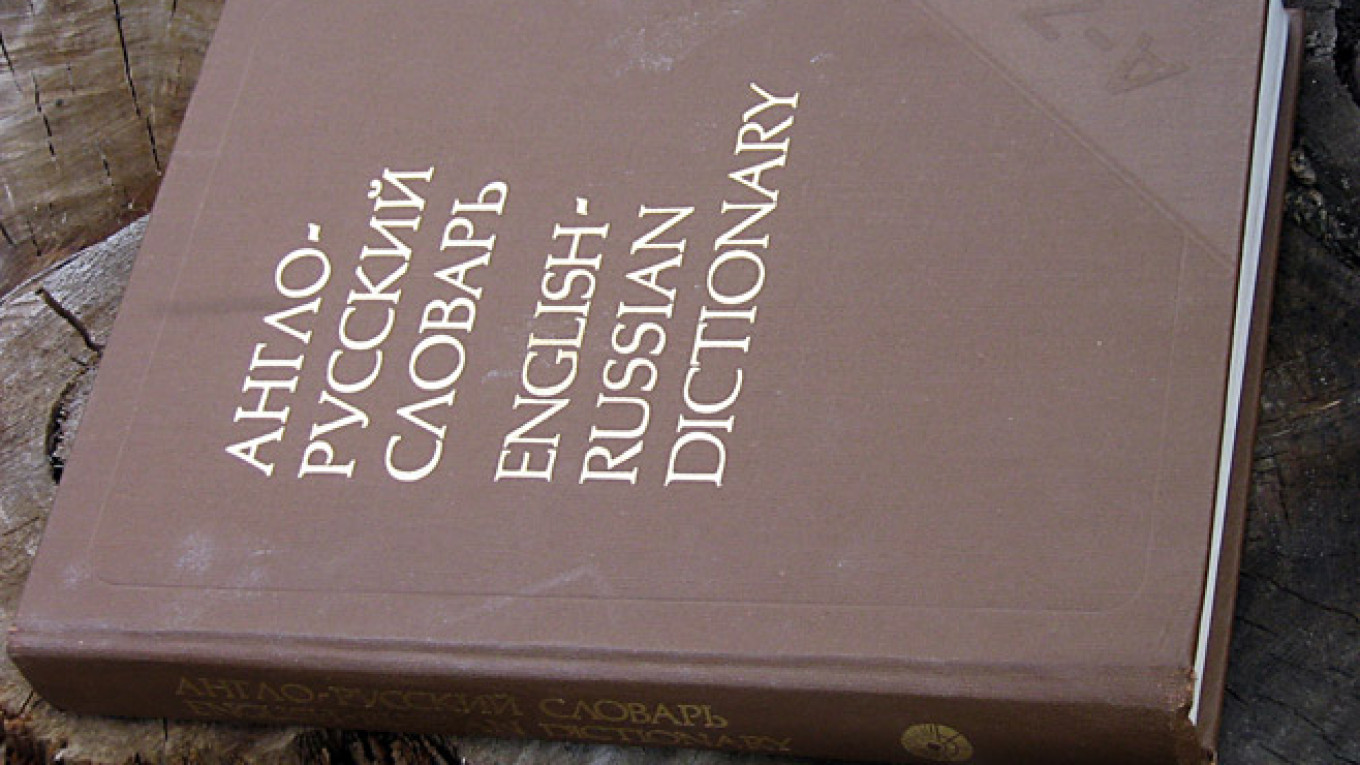-?‚??: a great little intensifying, attention-directing, intimacy-creating particle
A few months ago, before this newspaper's online comments section turned into a troll free-for-all and the kindest post that my columns got was, "Stupid expats can't speak Russian anyway, jerk-head," a thoughtful and curious poster asked about the particle -?‚??, which can be added to words, especially pronouns, usually as an intensifier. I love readers' questions, even though they always turn out to be trickier to answer than I expect.
With -?‚??, there are two tricks: figuring out how to use it in daily speech, and then figuring out how to translate it. These two little letters draw attention to a word, intensify the meaning, or add some emotional color to a phrase or utterance — that is, they do what Russian is great at doing. The problem is: English — not so much.
But some usages of -?‚?? aren't hard to deal with. First, there's the "I don't know exactly" -?‚??. The particle -?‚?? can be added to adverbs like ?????????° (when) or ?????µ (where) to produce "some" adverbs: ?????????°-?‚?? (sometime), ?????µ-?‚?? (somewhere), ?????‡?µ????-?‚?? (for some reason), ?‡?‚??-?‚?? (something). ?’???µ ?‚?€?°?????†???? ?????????°-?‚?? ?????·???????°???‚ ?????µ?€???‹?µ. (All traditions appear for the first time at some point.) ???‚??-?‚?? ?????µ ?????????€???», ?‡?‚?? ???? ?€?°?±???‚?°?µ?‚ ?? ?????‚?µ?€?µ. (Someone told me that he's working in St. Pete.) In all these cases, the -?‚?? means that you know something was done by someone sometime somewhere, but you don't know the specifics.
Then there's the "it's not important" -?‚??. In this case, you add -?‚?? to words, usually pronouns, to indicate that although you might know the details, you're not interested in them. For example: ???? ???‚?°?» ?€?°???????°?·?‹???°?‚??: ?±?‹?» ?‚?°??-?‚?? ?? ?‚?°??-?‚??, ???µ?»?°?» ?‚??-?‚?? ?? ?‚??-?‚??, ?????‚?€?µ?‡?°?»???? ?? ?‚?µ????-?‚?? ?? ?‚?µ????-?‚??. (And he began to tell his story: He was here and there, he did this and that, he met with so-and-so and so-and-so.)
And there's the opposite: the "this is really important" -?‚??. In this case, you add -?‚?? to whatever word you want to emphasize or draw attention to.
In spoken language, the -?‚?? usually gets conveyed by intonation. ????-?‚?? ???????????°?µ?‚! (***He*** understands.) But it's harder to convey on paper. Usually you have to add a lot to make up for those clever two letters: ???»?????°?‚??-?‚?? ???? ???»?????°?», ?° ?????‡?µ???? ???µ ???????????°?». (He might have listened, but it didn't make any difference, he didn't understand a thing.)
?????±?°????-?‚?? ???? ???‹?????»???», ???? ?????‚ ?????µ?€?? ?·?°???€?‹?‚?? ?·?°?±?‹?». (He forgot to close the door, but the dog — he sure remembered to walk that dog.) ?“???????€???‚, ?‡?‚?? ???????±???????‹?… ???‚???»???????? ???µ?‚, ?° ??-?‚?? ?????¶?? ???… ?????»????! (He tells me that there aren't any free tables, but I'm standing there, looking at a lot of them!)
Sometimes the emphasis is hard to grasp. For example, I asked some native speakers to tell me the difference between the phrases "?’ ???±?‰?µ??, ???? ?…???€???????? ?‡?µ?»?????µ??" and "?’ ???±?‰?µ??-?‚??, ???? ?…???€???????? ?‡?µ?»?????µ??." Both mean: In general, he's a good person. But since "?? ???±?‰?µ??" means "by and large, not entirely," when -?‚?? is added to it, the phrase emphasizes "not entirely" and sounds slightly more doubtful. You expect to hear: ???? … (but …).
And finally, there's the "emotional" -?‚??. When added to some words, -?‚?? somehow conveys intimacy or compassion or warmth. ????, ?±?µ???°-?‚??! (Oh, my heavens! That's just so sad!) ?’?????‡???°-?‚?? ???¶?µ ?‡???‚?°?µ?‚! (My smart little granddaughter already can read!)
???°?? ?‚???¶?µ?»??-?‚??! (Man, this is hard!)
Michele A. Berdy, a Moscow-based translator and interpreter, is author of "The Russian Word's Worth" (Glas), a collection of her columns.
A Message from The Moscow Times:
Dear readers,
We are facing unprecedented challenges. Russia's Prosecutor General's Office has designated The Moscow Times as an "undesirable" organization, criminalizing our work and putting our staff at risk of prosecution. This follows our earlier unjust labeling as a "foreign agent."
These actions are direct attempts to silence independent journalism in Russia. The authorities claim our work "discredits the decisions of the Russian leadership." We see things differently: we strive to provide accurate, unbiased reporting on Russia.
We, the journalists of The Moscow Times, refuse to be silenced. But to continue our work, we need your help.
Your support, no matter how small, makes a world of difference. If you can, please support us monthly starting from just $2. It's quick to set up, and every contribution makes a significant impact.
By supporting The Moscow Times, you're defending open, independent journalism in the face of repression. Thank you for standing with us.
Remind me later.


